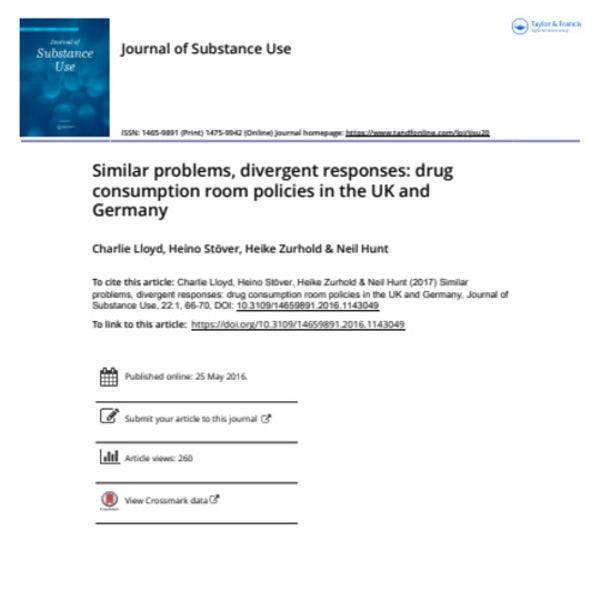Problemas parecidos, respuestas discrepantes: Políticas sobre salas de consumo de drogas en el Reino Unido y Alemania
Este estudio muestra que las diferencias en las respuestas públicas e institucionales, así como el limitado poder de las administraciones locales en el Reino Unido, condicionan los distintos enfoques en materia de salas de consumo de drogas. Más información, en inglés, está disponible abajo.
By Charlie Lloyd, Heino Stöver, Heike Zurhold, and Neil Hunt
Drug consumption rooms (DCRs) enable the consumption of pre-obtained drugs under supervised conditions. While 24 DCRs exist in Germany, there are none in the UK despite similar levels of drug-related harms. The first official, German DCRs were introduced in Hamburg and Frankfurt in the mid-1990s. A key influence was the appearance of “open drug scenes” in such cities over this time, whereby large numbers of users congregated in parks or shopping centers. This led to powerful coalitions of politicians, police, and treatment agencies and DCRs were seen as a professional response to these problems. In the UK, there have been two high-profile recommendations for the piloting of DCRs, which have been rejected by the government for a number of reasons, including lack of evidence, legal problems, and negative media responses. In explaining the different situations in the two countries, key factors are the potential for city-level policies, the stigma attached to drug users in media reporting, and the historical development of open drug scenes. Chance has also played a part, particularly in the UK. Drug policy is rarely a government priority, and drug policy decisions are therefore affected by wider political goals and pressures in unpredictable ways.
Click here to read the full article (restricted access).
